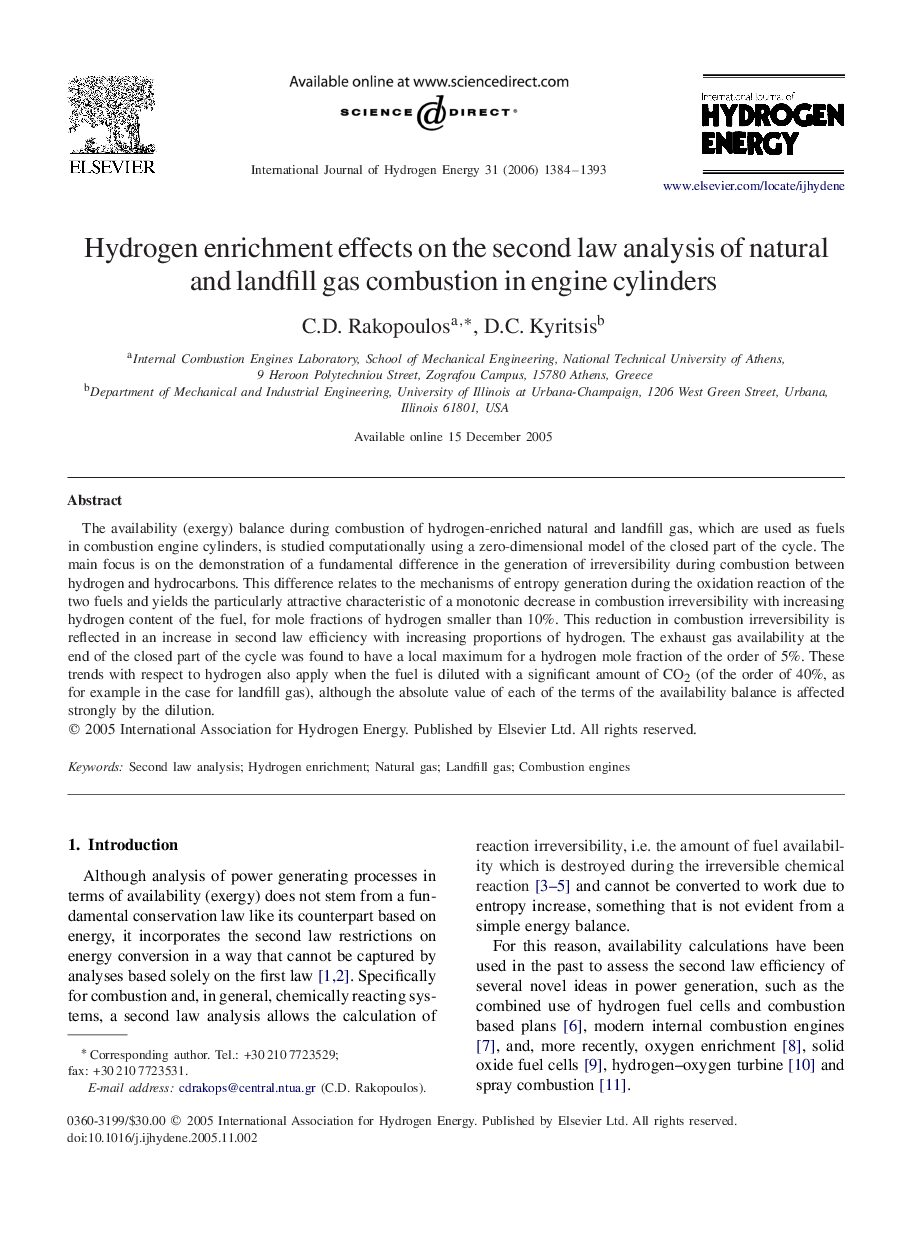| Article ID | Journal | Published Year | Pages | File Type |
|---|---|---|---|---|
| 1280527 | International Journal of Hydrogen Energy | 2006 | 10 Pages |
The availability (exergy) balance during combustion of hydrogen-enriched natural and landfill gas, which are used as fuels in combustion engine cylinders, is studied computationally using a zero-dimensional model of the closed part of the cycle. The main focus is on the demonstration of a fundamental difference in the generation of irreversibility during combustion between hydrogen and hydrocarbons. This difference relates to the mechanisms of entropy generation during the oxidation reaction of the two fuels and yields the particularly attractive characteristic of a monotonic decrease in combustion irreversibility with increasing hydrogen content of the fuel, for mole fractions of hydrogen smaller than 10%. This reduction in combustion irreversibility is reflected in an increase in second law efficiency with increasing proportions of hydrogen. The exhaust gas availability at the end of the closed part of the cycle was found to have a local maximum for a hydrogen mole fraction of the order of 5%. These trends with respect to hydrogen also apply when the fuel is diluted with a significant amount of CO2 (of the order of 40%, as for example in the case for landfill gas), although the absolute value of each of the terms of the availability balance is affected strongly by the dilution.
